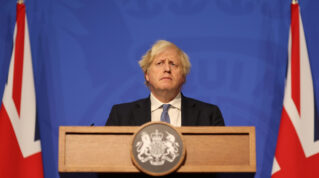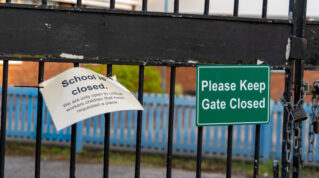Delivered to the right children, one-to-one tuition plans could level the educational playing field, writes Sir Peter Lampl
If you were to look for one powerful reason to explain the yawning achievement gap between working-class and middle-class children who go to the same school, you’d have to go a very long way to find a more persuasive explanation than the preponderance of private tutoring.
In their millions, affluent parents, quite understandably, have for years bought educational advantage for their children at the affordable cost (to them) of typically £28 per hour.
This is one of the many reasons why pupils who are from poorer homes achieve on average so much less at school than their more prosperous peers, even when exposed to the same teachers and the same curriculum.
This injustice is why the prime minister’s commitment in his Conservative Party conference speech to expanding one-to-one tutoring to both the highest and lowest achieving students should be so welcome.
“We can all see the difficulties, but I believe such intensive teaching could be transformational, and of massive reassurance to parents,” the prime minister told his virtual audience.
The focus on lower-income pupils has to remain
His ambition is not misjudged. The social mobility foundation that I founded and chair, the Sutton Trust, has long argued for better access to tutoring as a way of levelling the playing field between the poorest and richest students.
In a study that we published only last year, we found that the proportion of 11-16-year-olds in England and Wales who have received tuition rose from 18 per cent in 2005 to 27 per cent this year.
But more than one-third (34 per cent) of children from “high affluence” households have received such tuition at some point, compared with 20 per cent from low affluence households.
There is a reason tutoring is prevalent among middle-class families. It works. According to the Education Endowment Foundation’s “Teaching and Learning Toolkit”, high-quality tutoring can lead to, on average, five months’ additional progress. This has the effect of creating a social mobility “glass floor” for those who can afford it.
If we’re serious about ending education inequality, we need to give young people from lower-income homes access to these same opportunities. And so we were pleased when the prime minister recognised earlier this year that tutoring could help close the achievement gap that had grown still further as a result of the Coronavirus closure of all schools.
It is to be hoped that the £350 million that Johnson committed back in June to tutoring (£76 million of which is being delivered by the Sutton Trust’s sister charity, the Education Endowment Foundation, which I also chair) will help reverse the damage caused to the prospects of poorer young people by Covid. But more than that, Boris Johnson’s (non-specific) commitment to broaden access to tutoring represents not just a chance to repair that damage with a short-term fix, but to go further with a longer-term gambit in the battle to end educational disadvantage.
In addition to providing much-needed support to pupils who are falling behind, tutoring also has a role to play in supporting high-attaining disadvantaged pupils. It can give them that extra breadth and stretch to help them reach their full potential which can in turn have knock-on effects for university access, which remains highly unequal.
So, it is right that the scope of government-funded tutoring should include those who are highly able, but the focus on lower-income pupils has to remain. If not, there’s a serious danger that it will only widen the attainment gap further still.
Before Covid struck, the Sutton Trust, the Education Endowment Foundation and many other committed teachers, heads, educationists, campaigners and politicians had fought a long campaign to close the achievement gap between poor students and their rich classmates. Over a decade we had made slow but distinct progress. That has been wiped out by the events of this horrific year.
If ministers get this right, we might stand a chance of making a real difference to the long-term prospects of the many talented young people this country is going to need to bounce back from Coronavirus and to thrive.
















Your thoughts